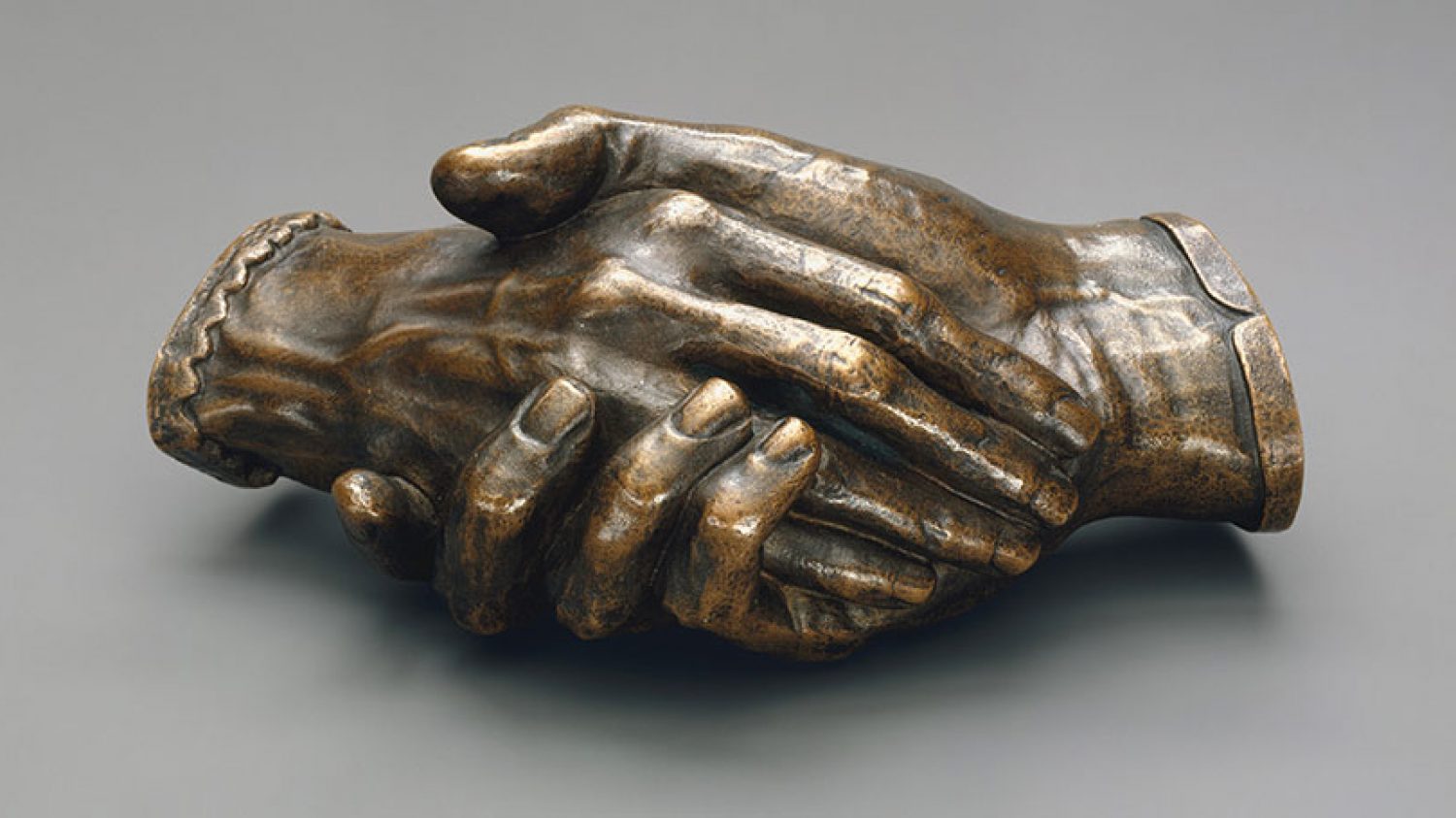How Do I Love Thee? by Elizabeth Barrett Browning

An engraving of Elizabeth Barrett Browning, published in Eclectic Magazine
How do I love thee? Let me count the ways.
I love thee to the depth and breadth and height
My soul can reach, when feeling out of sight
For the ends of being and ideal grace.
I love thee to the level of every day’s
Most quiet need, by sun and candle-light.
I love thee freely, as men strive for right.
I love thee purely, as they turn from praise.
I love thee with the passion put to use
In my old griefs, and with my childhood’s faith.
I love thee with a love I seemed to lose
With my lost saints. I love thee with the breath,
Smiles, tears, of all my life; and, if God choose,
I shall but love thee better after death.
The beautiful sculpture pictured above is a model of the actual hands of Elizabeth Barrett and Robert Browning, done by an American sculptor called Harriet Hosmer.
This sonnet by Victorian poet, Elizabeth Barrett Browning, is no. 43 in her volume Sonnets from the Portuguese. Because of her olive skin and black hair, her husband Robert often called her ‘Portuguese’, and it was her love for him which inspired the sequence, but she didn’t want everyone to know they were personal and so tried to give the pretence that the poems were translated from Portuguese. The volume was published in 1850.
It is a Petrarchan sonnet in iambic pentameter. It begins in an almost conversational way, as the poet challenges herself to discover in what ways she loves. This is the question that will drive the poem. The words give a sense of an all-encompassing love, stretching the limits of measurement – height, breadth, depth, etc. Such words as ‘soul’, ‘grace’, and ‘saints’ imply that her love goes beyond the here and now – it is no ordinary love, but stretches into the eternal. Her love is free, unconditional, peaceful. A love that she once felt as a child for religious figures, has now had passion added, and also sorrow and joy. It is an intimate poem, with a sense of domestic living together. It is also a poem about faith – faith in love, in God, and in an afterlife when the two lovers will be together. The sonnet expresses the ability of love to overcome everything, including death, and to give richness and meaning to life.
Listen to fabulous Dame Judi Dench read it to you:
Share your thoughts on this poem by leaving a comment.
Selected links for relevant websites, books, movies, videos, and more. Some of these links lead to protected content on this website, learn more about that here.

Janice Figge
So beautifully read.
Felicity Pulman
A wonderful and very moving reading of a beautiful poem; thank you for sharing this.
Susannah Fullerton
So glad you enjoyed it.